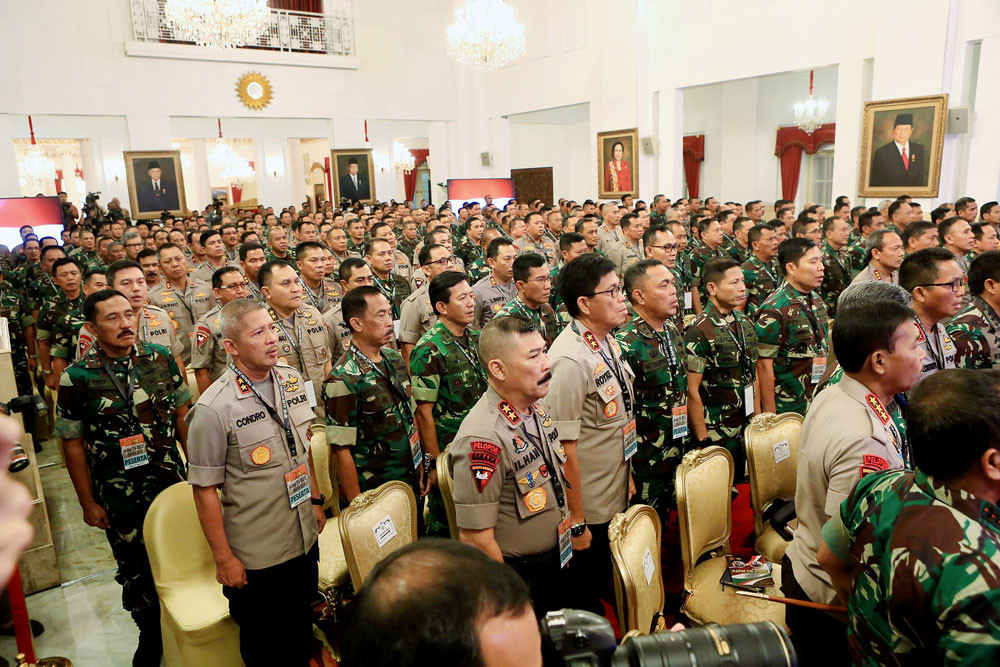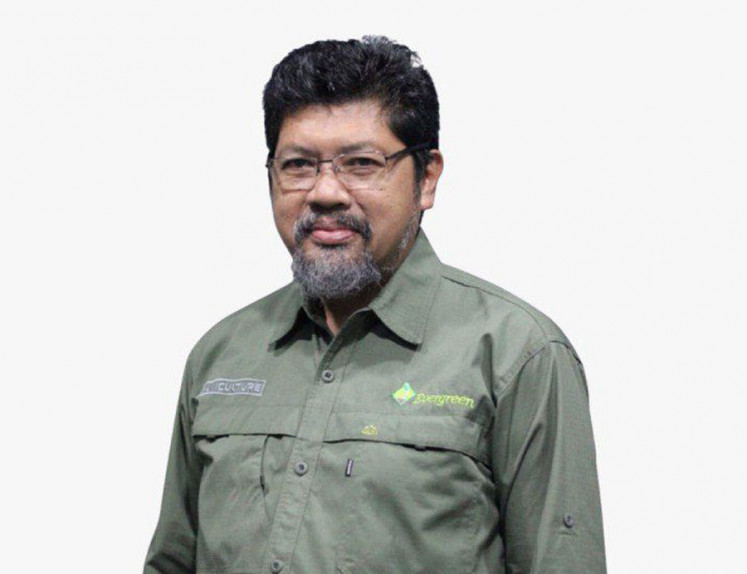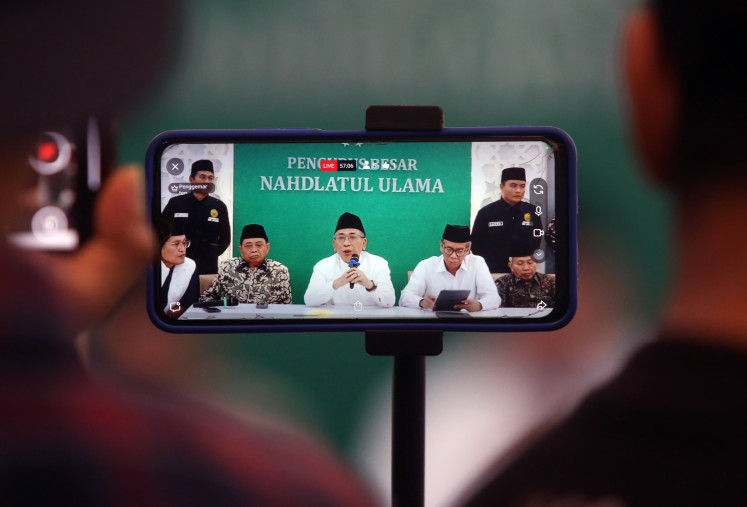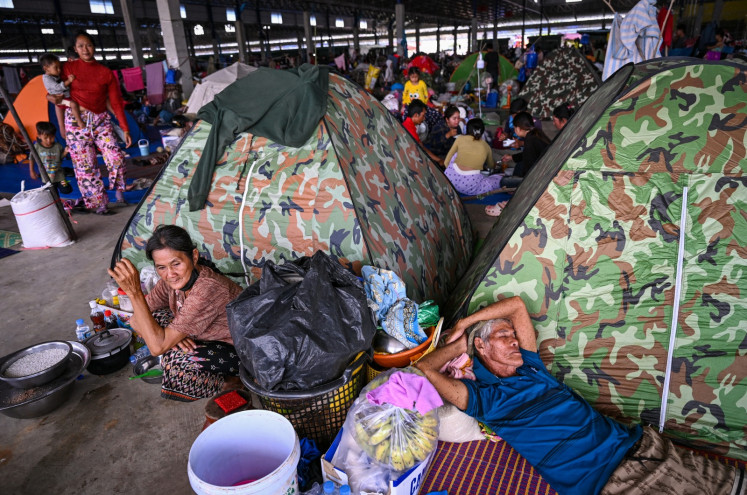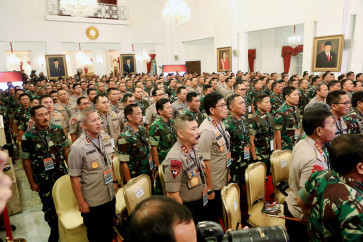Popular Reads
Top Results
Can't find what you're looking for?
View all search resultsPopular Reads
Top Results
Can't find what you're looking for?
View all search resultsAnalysis: Debate reveals little foreign policy, more on candidates’ characters
Change text size
Gift Premium Articles
to Anyone

Anyone looking for a clue about the direction of Indonesia’s defense and foreign policy in the next administration would have been utterly disappointed when these issues were brought into the spotlight in Sunday’s presidential debate.
There was little in terms of substance in the third of the five debates organized by the General Elections Commission (KPU) before the Feb. 14 election. The televised event did shed light onto the characters and personalities of the candidates, but it is safe to conclude that Indonesia’s foreign and defense policies are unlikely to change very much under the next administration, regardless of who wins the race.
Prabowo Subianto, the likely winner according to most opinion surveys, had been expected to excel in the debate, given that he is a retired Army lieutenant general and has been defense minister in President Joko “Jokowi” Widodo’s cabinet since 2019. Foreign policy and defense are topics he should better understand compared to the other two candidates, former Jakarta governor Anies Baswedan and former Central Java governor Ganjar Pranowo.
Prabowo however failed miserably with Anies, and to a lesser degree Ganjar, during the debate. At times, the attacks he received seemed personal, as they questioned his record as defense minister. Anies, a scholar by training, and Ganjar, a seasoned politician, were far more articulate than the more senior retired general.
Surveys conducted on social media immediately after the debate showed that many people believed Ganjar came out as the best debater in this round. He was sharp and critical, yet remained courteous. Anies came second as many felt he was too aggressive, at times even cocky. But if this was a strategy, it worked, for he upset Prabowo, who looked bad and at times emotionally unstable, and was unable to answer some questions, although this was more likely caused by a lack of preparation.
The debate failed to address tough questions about Indonesia’s foreign and defense policies, including how the candidates would handle the escalating rivalry between China and the United States, the conflict in the South China Sea or Indonesia’s military capabilities in the event of a war or a foreign aggression, which no longer can be dismissed under the rapidly changing geopolitical environment.

Candidates addressed the plan to upgrade the military weaponry under the 15-year Minimum Essential Force (MEF) program which ends this year. This program requires Indonesia to spend billions of dollars, but budget constraints forced the Jokowi administration to withhold spending on defense and the program will barely reach 70 percent of the target when it ends this year.

